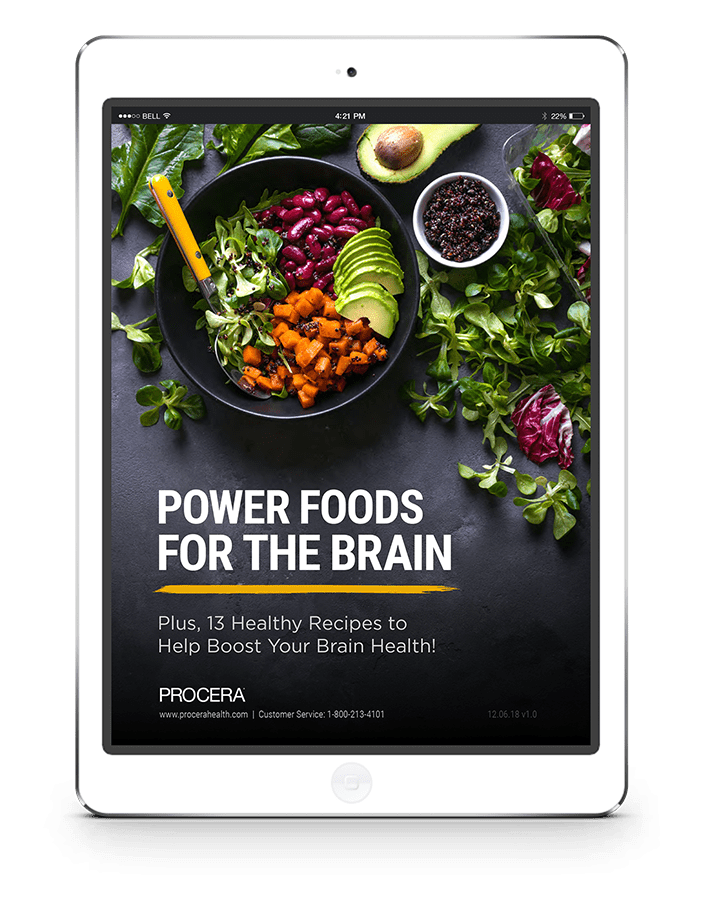
Caffeine is for many people a constant morning companion, and a lot of us couldn’t imagine life without it. But is it healthy? Over the years, news reports seem to conflict on whether or not caffeine is a good or bad thing. To put the matter to rest, we rounded up the definitive scientific research on the matter. In this article, we review the benefits, potential negatives, and some of the most frequently asked questions about America’s favorite stimulant.
Article At-A-Glance
- Caffeine is thought to be the most popular stimulant in the world.
- Caffeine works by blocking a chemical called adenosine, which creates a feeling of drowsiness.
- Not everyone responds to caffeine in a similar way.
- Caffeine can heighten alertness and concentration.
- Caffeine may help boost mood; although in high doses, it may worsen mood.
- Caffeine may interfere with sleep; however, measures can be taken to help lessen or negate these effects.
- Caffeine does not appear to have long-term effects on weight loss.
- Several studies reflect that caffeine may benefit sports performance.
- The FDA indicates that 400 mg is a safe daily limit of caffeine intake.
Caffeine Defined
What is caffeine? It’s actually a stimulant and the most used psychoactive drug in the world. It is naturally-occurring in some foods, and it can also be synthetically manufactured. Even though it’s classified as a drug, it is legal in nearly every part of the world.
How Caffeine Works
Scientists understand that there are several chemical processes that explain the effects of caffeine. The primary way that caffeine works is by temporarily blocking a chemical in all human cells called adenosine. The important thing to remember about adenosine is that when it binds to receptors in the brain, it creates a feeling of drowsiness. The main way that caffeine works is by blocking the activity of adenosine on its receptor. When caffeine enters the body, it actually binds to the adenosine receptor and takes its place. So what this means is that when you take caffeine, your brain can no longer tell that adenosine is present. Rather than slowing down, your nerve cells become more active.
Another effect of caffeine is that it causes blood vessels to constrict, whereas adenosine would cause them to dilate. This explains why some headache medicines contain caffeine: the constriction of blood vessels may help ease vascular headaches.
Does Caffeine Affect Everyone?
The response to caffeine can vary dramatically from person to person. Some people are highly sensitive, while others may experience little to no effect. Scientists are uncovering that genetics may play a significant role in your individual reaction to caffeine. In fact, we all have a ‘caffeine gene,’ which is called CYP1A2 (named after its effect on the enzyme with the same name). CYP1A2 controls how quickly your body metabolizes caffeine. How fast your body metabolizes caffeine will determine how long it stays in your system and how long (and how intensely) you feel its effects. Those who have a ‘fast’ variant of the gene process caffeine quickly, while those with ‘slow’ CYP1A2 feel its effects more dramatically and for longer periods of time.
The Effects Of Caffeine On The Brain
How Caffeine Affects Mental Performance
As we discussed earlier, caffeine’s stimulating effects comes from its ability to block your ‘drowsy’ chemical adenosine. But what effect does it have on our mental abilities? It is safe to say that that caffeine does heighten our sense of alertness and concentration. This was supported by the European Food Safety Authority, which reached this conclusion after a lengthy review of scientific literature. The EFSA also concluded that 75 mg of caffeine may positively benefit both sustained and selective attention.In other words, ingesting caffeine may help our ability to strain out and focus on competing stimuli. It may also help us remain focused and mentally zeroed in on the task at hand (source).
How Caffeine Benefits Our Mood
You’ve no doubt experienced the rejuvenating effects of caffeine, but does it really impact our mood? According to research, yes it does--sometimes for the better and sometimes for the worse. In one sense, caffeine boosts mood because it can heighten a sense of focus and task-readiness. Some research indicates that subjects who took 75 mg of caffeine at 4-hour intervals did experience heightened mood. Low to moderate doses of caffeine (2 to 5 cups of caffeine per day) may help boost sense of well-being. However, caffeine in higher doses may also contribute to tensions, nervousness, and anxious thoughts.
Caffeine And Sleep
While some people experience the effects of caffeine more than others, caffeine can have an impact on sleep quality and daytime fatigue. The most widely-observed effects of caffeine on sleep are shorter sleep time, lower quality of sleep, reduced deep sleep, and more frequent awakenings. REM sleep or the dream stage of sleep appears to be less impacted by caffeine.
This does not mean that caffeine will have a negative impact on sleep for everyone. In general the time of day when caffeine is ingested is a major factor in sleep disturbances. However, the total amount of caffeine consumed over a day can also play a role in affecting sleep. A 2016 review of research concluded that there are a number of factors that may determine the effect of caffeine on sleep for an individual. These may include: age, amount of regular caffeine intake, genetic factors and sensitivity.
If caffeine disturbs your sleep, it is generally best to only consume it in the mornings. Caffeine can stay in your system for up to 12 hours, so avoiding caffeine after lunch may be a good rule of thumb.
Benefits Of Caffeine Outside The Brain
Caffeine and Weight Loss
Caffeine certainly has energizing effects, and many have associated it with weight loss. However, research indicates that caffeine consumption does not lead to significant or long-term weight loss. In the short term, caffeine can help increase metabolic rate, which in turn can have a fat-burning effect. However, once the body becomes acclimated to regular caffeine use, then it no longer effects the metabolism this way. Caffeine is found as an ingredient in many weight-loss supplements; however, there is currently no sound body of research supporting caffeine as a ‘fat-burner.’ There is one way in which caffeine may indirectly contribute to weight loss: it can temporarily suppress hunger pangs and a desire to eat. If you are relying on caffeine for weight loss you may want to consider trying something else.
The Effect Of Caffeine On Sports Performance
A wide body of research supports the notion that caffeine can positively impact several aspects of sports performance. An area that has been particularly well researched is caffeine’s effect on power output. Multiple studies confirm that caffeine may benefit anaerobic exercise (i.e. weightlifting) because of its antifatigue effects and its temporarily energizing impact. Caffeine has also been shown to boost endurance in clinical trials. The EFSA recognizes that caffeine may increase endurance performance, endurance capacity, and lower perceived exertion.
A major ingredient in many sports supplements, caffeine is so effective at boosting athletic performance, that it has been banned by the NCAA in high doses. Multiple studies reveal that caffeine has helped long distance runners run faster and cyclists increase workload. Overall, there is more research to support caffeine’s effect on athletic performance than any other potential benefit.
Caffeine Side Effects
Caffeine Addiction
Although many people joke about how they can’t live without caffeine, caffeine addiction is a real phenomenon. A thorough scientific review indicates that caffeine triggers the brain in a way similar to amphetamines or cocaine. However, it does not form the same kind of classic addiction that these drugs do.
Although not to the same extent as harder drugs, caffeine may cause physical or psychological dependence, especially among heavy users. As with other forms of chemical addiction, caffeine withdrawal symptoms may occur when abruptly stopping caffeine use. In one study, 213 caffeine users were questioned after going 16 hours without it. Daily users reported increased headaches, fatigue and other withdrawal symptoms than non-daily users.
Digestive Issues
If you’re ever wondered why you have to rush to the bathroom after drinking coffee, there’s a good reason for that. Caffeine can act as a laxative, and consuming it may lead to uncomfortable digestive issues. According to Lori Chong, registered dietitian at Ohio State’s Wexner Medical Center, “Your colon is a muscle, and since caffeine stimulates muscles, caffeine intake can stimulate...the rhythmic contractions of the GI tract. This can result in diarrhea or loose stools for some...(source)”
Additionally, too much caffeine may result in other stomach-related issues. According to research fellows at Northwestern University, Drs. Charles Galanis and Robert Dorfman, “Caffeine is acidic, so...too much of it...may potentially damage the lining of your digestive tract. Too much caffeine consumption may induce ulcer formation and inflammation of the gastric wall.” (source)
So in light of these undesirable effects, what is the secret to enjoying caffeine? One key is simply moderation. When consumed in reasonable doses, caffeine will likely not produce major digestive discomfort.
Anxious Thoughts
You’re no doubt acquainted with the ‘jittery’ effects of caffeine, and in very high doses caffeine can be mood-altering. Some neuropsychiatric experts assert that caffeine may play an underestimated role in producing anxious thoughts, especially among heavy users of 1,000 mg or more per day. However, those who are highly sensitive to caffeine may experience similar mood disturbances at lower levels. Even modest doses have been reported to increase shallow breathing and increase stress levels, when consumed all in one sitting.
How Much Caffeine Is Healthy? [ps2id id='9topic' target=''/]
For healthy adults, the FDA has stated that 400 mg per day is generally the safe limit for caffeine intake. There is around 95 mg of caffeine in a cup of coffee, so to stay under the 400 mg limit, try and only have 3-4 cups of coffee per day. However, as we’ve already discussed, individual response to caffeine differs, and personal discretion should be used. Children, however, should be limited to no more than 100 mg per day.
Natural Caffeine Vs. Synthetic (Or Added) Caffeine
Caffeine is a naturally-occurring substance in many plants, and several of our foods contain ‘natural’ caffeine. Here are just a few: Dark Chocolate, Black Tea, Coffee, Gurana Berry, Matcha Tea, Kambucha, and Loose-leaf Green Tea.
Some foods, however, contain synthetic caffeine (or added caffeine) which is produced chemically. Rather than being sourced from plants, synthetic caffeine is manufactured from two chemicals: urea and chloroacetic acid.
Despite their differing origins, natural caffeine and synthetic caffeine have an identical chemical structure. In terms of their effects on the human body, both kinds of caffeine are actually quite similar.








.png?width=1350&name=Procera%20Logo%20W%20Tagline%20White%20(3).png)
Comments
Add Comment